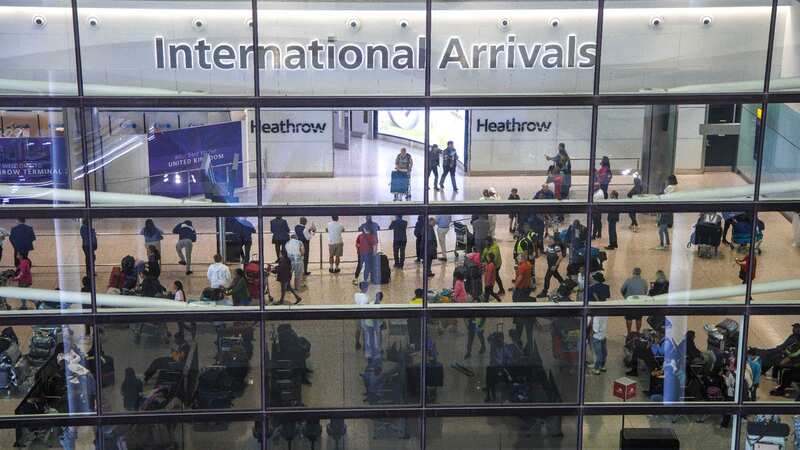Heathrow and Gatwick airports both have RAAC concrete at risk of collapsing

Two of the UK's biggest airports have confirmed that they have the collapse-pronce concrete RAAC at a number of locations on their sites.
RAAC is a lightweight concrete that was used during the 1950s and mid-1990s and has a "bubbly" texture. It was used mainly in roofs and sometimes in floors, according to the UK government. Both Heathrow and Gatwick have now confirmed they have locations containing the concrete which is prone to collapsing.
A London Gatwick spokesperson told the Mirror: "We have a register of locations containing RAAC on the airport campus, which are closely monitored through a regular comprehensive structural inspection regime. Our most recent inspection in June 2023 did not present any concerns, and we will continue to monitor on a regular basis."
A Heathrow spokesperson added: "Industry has been aware and acting on the remedial steps that should be taken in buildings that contain this material.
"We, like many others, have been assessing our estate and will continue to mitigate the risk where this material is found. Passenger and colleague safety will always be our first priority, and we will continue to update stakeholders across the sector as our plans for permanent solutions progress."
 Holidaymakers miss flights as IT chaos sees airport screens tell them to 'relax'
Holidaymakers miss flights as IT chaos sees airport screens tell them to 'relax'
Heathrow discovered the concrete in Terminal 3, and both airports say that mitigations are already in place as they work to finding a permanent solution.
It comes after the scale of the problem was brought to life as a number of schools were found to be at danger of collapse. A total of 156 were confirmed to be affected by Education Secretary Gillian Keegan in Parliament on Monday after dozens of buildings were closed in England and Wales.
The full list of schools has finally been published by the Department for Education but as more inspections are carried out, more and more are expected to be announced. Around 80 schools have been identified locally and in news reports as being among those affected, in a list compiled by the Press Association. RAAC is known to be present in more than 150 schools in England alone, and is prone to collapse, safety experts have warned.
At least four schools on this list applied for School Rebuilding Programme funding from the government last year, but only one received it, analysis by the Reach Data Unit has found. Problems with 'unsafe' RAAC concrete have been known about for decades, prompting warnings that the once-popular building material is now liable to collapse in schools across the country.
The outdated RAAC is weaker than normal concrete and can collapse without warning. Some pupils are already being told they will need to take pandemic-style remote lessons, while other headteachers have scrambled to find temporary facilities.
Cockermouth School in Workington, Myton School in Warwick, Scalby School in Scarborough, and The Appleton School in Benfleet, Essex, all applied to the SRP in 2022, according to data from the Department for Education. Only Cockermouth School was successful though, while the other three were not selected.
In addition to the schools, a theatre has also been shuttered over fears a crumbling ceiling could collapse on audience members.
The Forum Theatre in Romiley, Greater Manchester, announced that it would be cancelling shows due to the presence of Reinforced Aerated Autoclave Concrete (RAAC) within their building structure.
Read more similar news:
Comments:
comments powered by Disqus

































